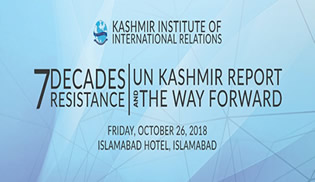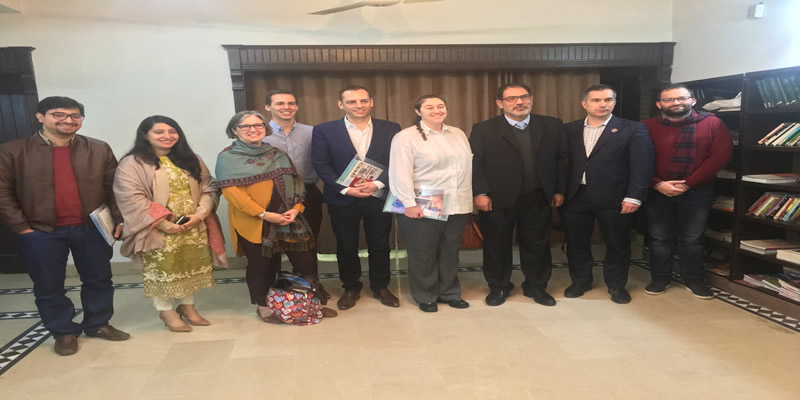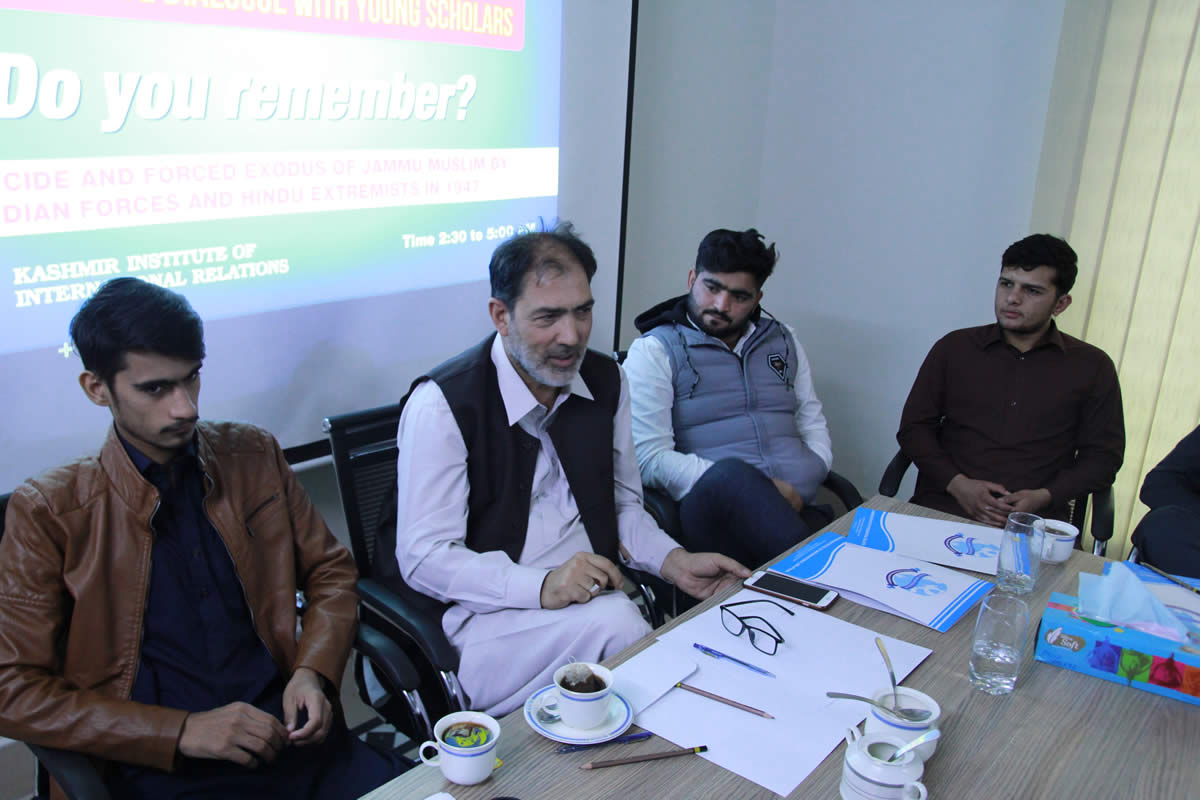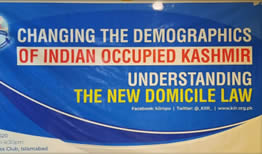webinar titled "75 Years of UDHR - Building a Sustainable Human Rights Culture
Speakers call for effective enforcement of the rights regime, establishing a strong accountability mechanism at the international level
Islamabad: Speakers at a webinar have called for an early and amicable resolution of world conflicts and disputes to achieve the lofty goals set out in the Universal Declaration of Human Rights (UDHR).
webinar titled
The webinar titled "75 Years of UDHR - Building a Sustainable Human Rights Culture," was organized by the Kashmir Institute of International Relations (KIIR) in collaboration with International Action for Peace & Sustainable Development (IAPSD), Mirpur University of Science and Technology (MUST) and University of Kotli Azad Jammu and Kashmir (UoK).
A distinguished panel of speakers comprised renowned experts in their respective fields including Dr. Livingstone Sewanyana the United Nations Independent Expert on the promotion of a democratic and equitable international order, Dr. Farah Naz, Professor at NUST, Dr. Gul Ayesha Bhati Human Rights Expert, Ms. Madiha Shakil, Dr. Shagufta Ashraf, Dr. Saira Shah, and others, whereas the event was moderated by the KIIR Chairman Altaf Hussain Wani,
Speakers Discussion
The speakers discussed in detail the formidable challenges of maintaining global peace and security in a polarized world. Stressing the urgency of adding teeth to the UN mechanism and effective enforcement of the human rights regime, the speakers said that the dream of building a sustainable human rights culture was not possible without upholding the principles enshrined in the UDHR.
About Kashmir, which was one of the key focuses of the event, the speakers said that India’s belligerent military occupation and fast deteriorating political and human rights situation in the region has since long been a cause for concern. Citing an alarming increase in the incidents of violence, bloodshed, and rampant violations of human rights in the region, they said that India’s human rights-abusing regime was brazenly violating the UDHR and other human rights treaties that besides upholding the other basic rights fully recognize the peoples’ rights to self-determination.
They said that addressing the specific concerns of Kashmiris was crucial for fostering a just and inclusive society.
The webinar, held to commemorate the 75th anniversary of the UDHR, prominently featured the theme of human rights as a central focus, with a strong call to address these issues head-on. The speakers emphasized that a truly free world cannot coexist with unresolved human rights concerns. They regrettably noted that the declaration that gave the world a benchmark for universal human rights standards was being trampled down by authoritarian regimes.
“This event marks a significant step towards fostering international dialogue and collaboration on critical issues that affect us all," said Dr. Livingstone Sewanyana, United Nations Independent Expert. “The call for united efforts resonates as we collectively navigate the complex landscape of global challenges”, he said.
“As the world grapples with interconnected challenges, this event catalyzes continued dialogue and action, urging nations and individuals alike to come together in the spirit of cooperation to address the pressing issues of our time”, he said.
Dr. Livingstone, who spoke extensively on the most pressing issues the world faces today, said that the UDHR was adopted against the backdrop of a devastating world war that led to the loss of millions of lives and property.
“It was envisioned at that time when world leaders gathered and expressed their commitment and resolve to cooperate and work together to ensure peace and prosperity in the world”, he said adding that the main objective behind the adoption of this milestone was to look at some of the daunting the world was facing at that time and find out solutions.
He said that it was quite unfortunate that since the establishment of this mandate, the world has failed to achieve the loft goals spelled out explicitly in the Human Rights Declaration. He said that the world still grapples with violence, armed conflicts, and humanitarian emergencies”.
Referring to the world conflicts that have been the cause and consequence of rights violations, he said, “As we mark the 75 years of the adoption of the Universal Declaration, all that we need to look at is how to ensure global peace and security”. When it comes to global peace, he said that as per the UN charter, the world community was morally and legally bound to work collectively to resolve the deadly and long-drawn conflicts that pose a serious threat to peace.
He said that one of the biggest challenges the world faces now is that powerful states act unilaterally and impose sanctions on states, which cause immense suffering and damage to the population. He said that there was a dire need to restore multilateralism to maintain peace and security. Referring to the UN charter, he said, “It was envisioned under the charter that the states would cooperate on all matters and work collectively for global peace”.
He said that fostering a sustained human rights culture requires that all the member states uphold their commitments and fulfill their legal and moral obligations to build a better and much safer world for future generations. The UN Security Council is very much divided, and one of the major problems is veto power given to some states, and they exercise this power when it suits them. Beyond the question of conflict, peace, and security, he said, climate change is one of the major challenges of our time.
The speakers called for enforcement of the human rights regime and effective accountability mechanisms at the highest level to hold the powerful accountable.

















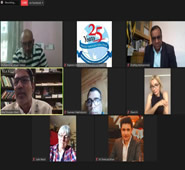
_1627626452.jpg)
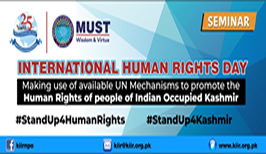
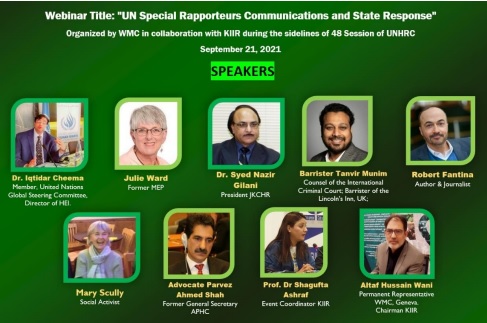
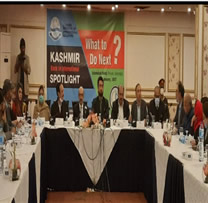
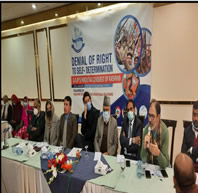
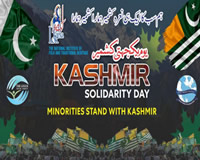
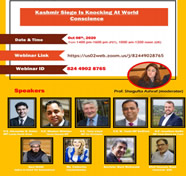
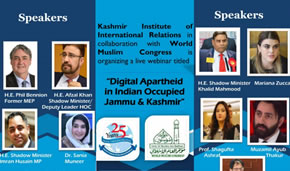
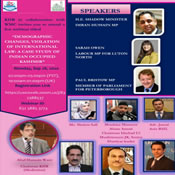
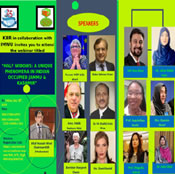
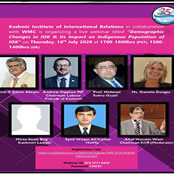
_1627627084.jpg)
